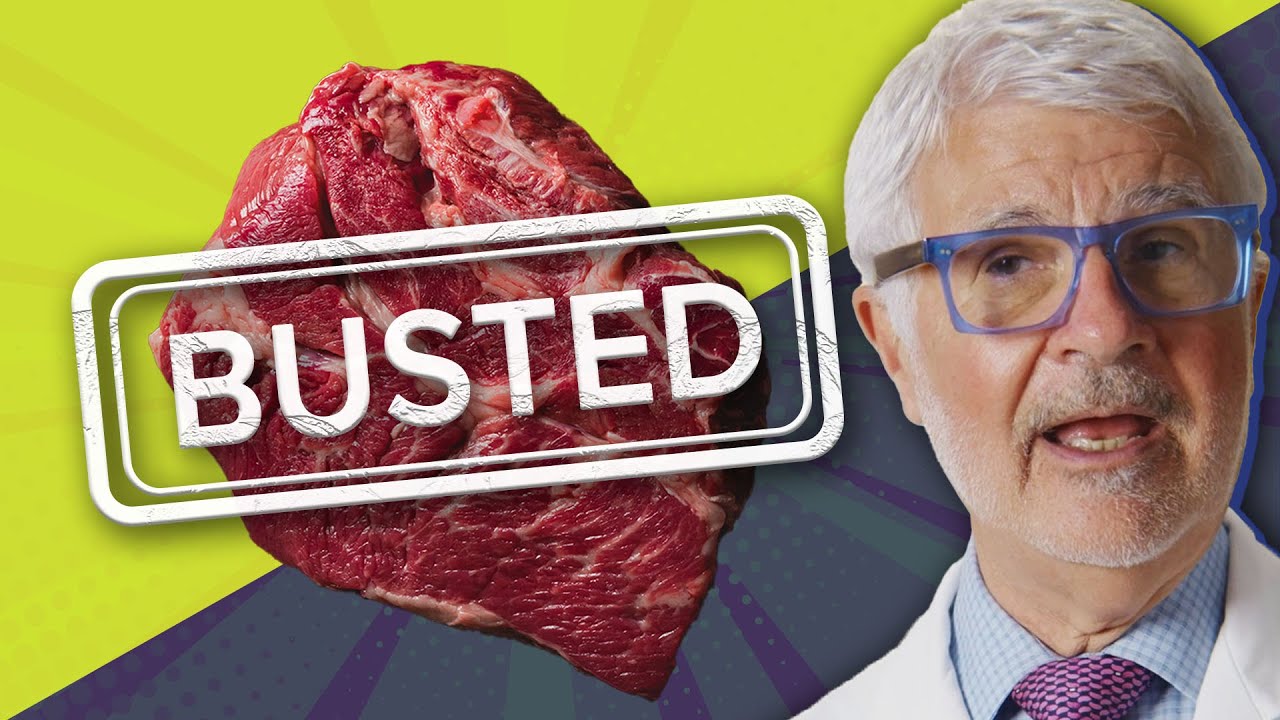Summary:
1. Protein intake can positively and negatively affect health outcomes.
2. The source of protein and the timing of intake play a crucial role in proper utilization and absorption.
3. Overconsumption of protein can lead to potential health concerns, including impaired kidney function and weight gain.
Watch THIS before adding more PROTEIN to your diet
Are you trying to bulk up your muscle mass or lose weight? Chances are you’ve been told to up your protein intake to reach your fitness goals. While protein is indeed an essential nutrient for our bodies, the truth is that not all protein is created equal.
Protein can benefit and harm our overall health, depending on the source and amount consumed. Furthermore, protein’s impact on our body can vary based on individual factors such as age, gender, and metabolic health.
In this article, we’ll take a comprehensive look at what protein is, what it does for our bodies, how much we need, and how to choose suitable sources and amounts for optimal health outcomes.
Protein – The Basics
Protein is one of three essential macronutrients that our bodies need to survive. Composed of amino acids, protein serves as the building block for muscles, organs, and tissues in our bodies, and it’s also involved in various physiological processes such as hormones and enzymes.
Unlike carbohydrates and fat, our bodies cannot store excess protein. Any excess protein we consume is either converted to fat or excreted, making protein timing and consumption critical for proper absorption and utilization.
Protein and Muscle Mass
Protein’s role in muscle mass is one of the most well-known benefits of consuming this macronutrient. Our muscles constantly break down and rebuild, with protein as a necessary component for building and repairing tissue.
While protein is essential for muscle building, the idea that more protein automatically leads to more muscle mass is a myth. Numerous factors besides protein intake, such as exercise, hormones, and genetics, play a critical role in muscle building. Therefore, consuming excessive protein without proper exercise and nutrition may not lead to significant muscle growth.
Protein and Weight Loss
Many people believe that a high-protein diet can help them lose weight because protein increases satiety and reduces overall calorie intake. While some evidence suggests that higher protein diets can lead to short-term weight loss, the long-term benefits remain uncertain.
Additionally, the quality of the protein source must be considered when examining weight loss outcomes. Studies have shown that diets high in plant-based proteins can lead to weight loss outcomes similar to those of animal-based proteins, with added benefits such as improved heart health and decreased inflammation.
Protein and Kidney Function
One of the most significant concerns associated with high-protein diets is the potential impact on kidney function. Excessive protein intake can cause the kidneys to work harder to eliminate waste products, potentially impairing kidney function over time.
However, this risk mainly concerns individuals with pre-existing kidney disease. For healthy individuals without a history of renal issues, studies have shown that a higher protein diet does not increase the risk of developing kidney disease.
Protein Recommendations
So, how much protein do we need, and what are the best sources? The answer to these questions varies based on individual factors such as age, gender, and activity level.
According to the Dietary Reference Intakes (DRIs), the recommended daily protein intake is 0.8 grams per kilogram of body weight. However, many experts suggest that athletes and people with high levels of physical activity may need up to 1.2-1.7 grams per kilogram of body weight to adequately support their body’s needs.
When it comes to protein sources, it’s essential to consider the quality of the protein. Animal-based sources such as eggs, chicken, and fish are complete proteins containing all the essential amino acids our bodies need. Additionally, many plant-based sources, such as beans, nuts, and seeds, are excellent protein sources.
The timing of protein intake also plays a crucial role in the body’s utilization of this macronutrient. For example, eating protein soon after exercise can help increase muscle recovery and growth.
Protein – Too Much of a Good Thing
While protein is a necessary nutrient for our bodies, overconsumption can lead to potential health concerns. Consuming excessive amounts of animal-based protein may increase the risk of heart disease, cancer, and even mortality.
Furthermore, consuming more protein than our bodies can handle can lead to weight gain. Protein digestion requires more energy than carbohydrates and fat, which means that consuming too much protein without a corresponding increase in physical activity or energy expenditure can lead to a calorie surplus and eventual weight gain.
Conclusion
In summary, protein is an essential nutrient for our bodies, a building block for muscles and tissues. However, not all protein sources are created equal, and proper timing and intake amount are crucial for proper utilization and absorption.
Therefore, it’s essential to consider individual needs and lifestyles when deciding how much and which protein sources to consume. Protein can be a beneficial and healthy addition to our diets with the right choices and balance.
*****
Source Description
Dr. Gundry Busts 3 common protein MYTHS!
Protein is essential to living a whole and healthy life at any age. But not all protein is created equal. So you must get suitable protein.
ADD High-quality Plant protein to your diet without the hassle!
Buy Gundry MD Proplant: https://bit.ly/3Ei0Wcl.
———————
Take 25% off any regularly priced item with the discount code: YOUTUBE25.
———————-
⬇️ Become a channel member ⬇️
https://www.youtube.com/channel/UC4ODXZL2r3XepieV0uoRjNA/join
———————-
Follow Gundry MD
👥Facebook: https://www.facebook.com/GundryMD
📸Instagram: https://www.instagram.com/gundrymd
📌Pinterest: https://www.pinterest.com/gundrymd
🎵TikTok: https://www.tiktok.com/@gundrymd
#PlantProtein #GundryMD #AnimalProtein


